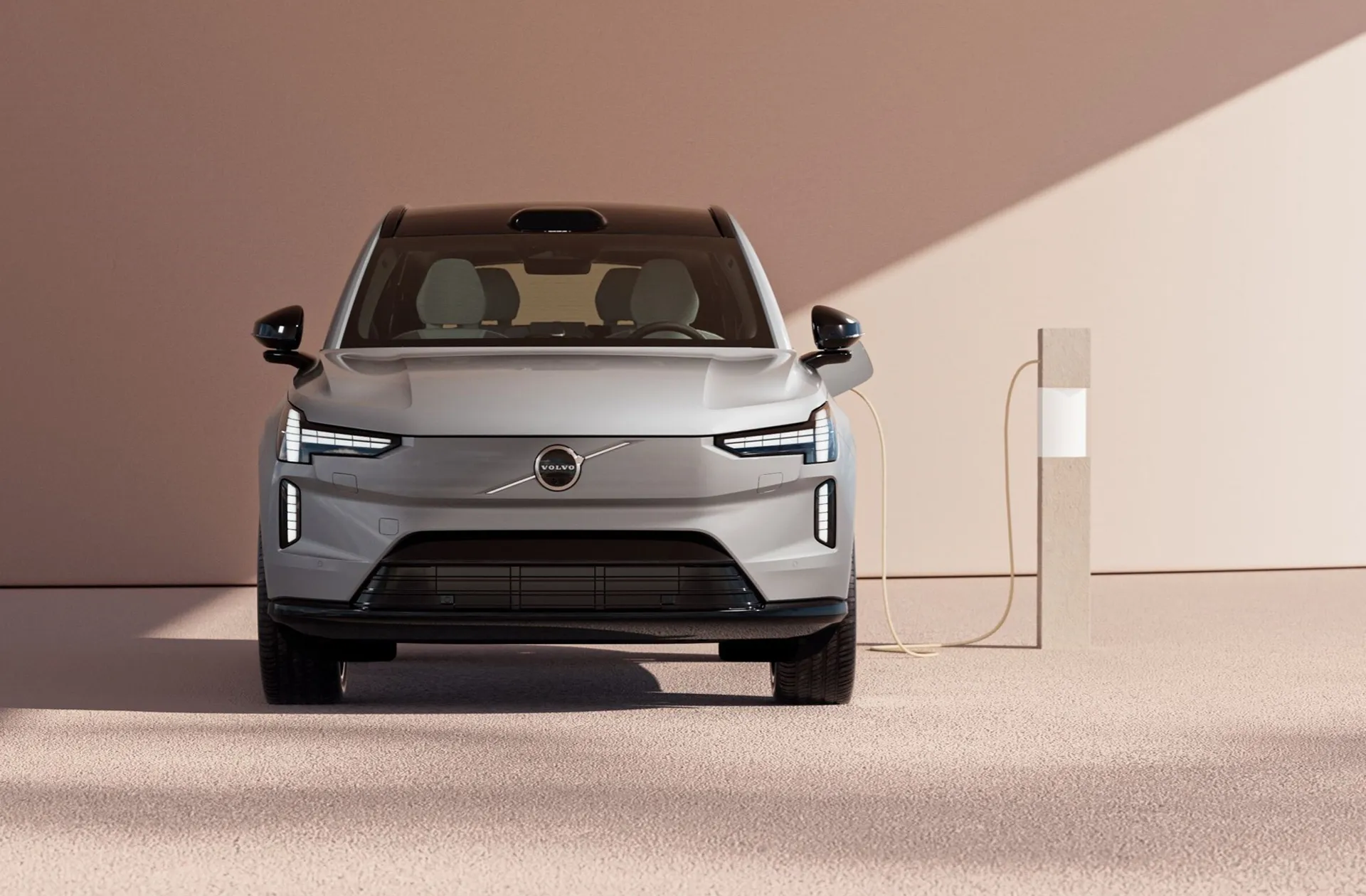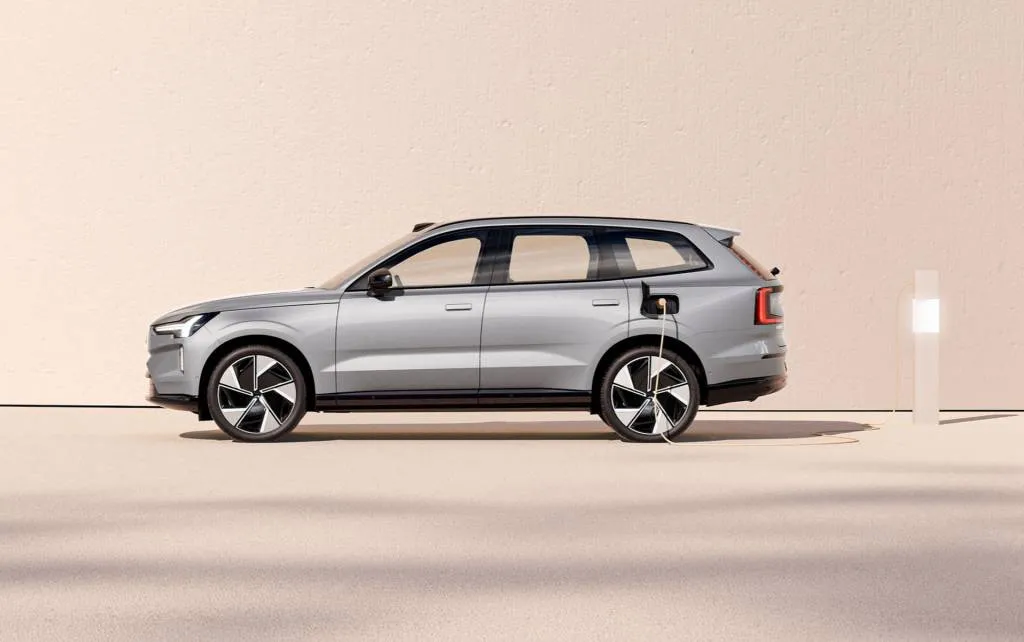
Volvo on Thursday announced a new business unit focused on tapping into the potential of EV bidirectional charging.
Volvo Cars Energy Solutions will offer “energy storage and charging-related technologies and services,” according to a company press release. But that won’t be a reality in the U.S. until the launch of the Volvo EX90, the first Volvo EV to be equipped for bidirectional charging.
For now, Volvo is launching a vehicle-to-grid (V2G) pilot program with Göteborg Energi Nät AB, a local utility in the automaker’s headquarters city of Gothenburg, Sweden. The program will involve real customers and will use low-cost AC wallboxes to help accelerate adoption of V2G tech, according to Volvo.
Volvo Cars Energy Solutions
Volvo aims to go all-electric by 2030 and to put “millions” of EVs on the road in the coming years. The automaker estimates that the total battery capacity of its fleet will reach around 50 GWh by mid-decade, providing ample excess capacity for V2G uses.
While Volvo estimates its cars will eventually use several terawatt-hours of electricity per year, current estimates also show that the average daily drive in Europe uses less than 10 kwh of energy, while 90% of daily drives use less than 20 kwh. In addition to supplementing the grid with V2G use cases, Volvo hopes excess energy can be used for vehicle-to-home (V2H) functionality, supplementing home electricity, or in vehicle-to-load (V2L) applications for charging devices like camping gear or even electric bicycles.

2024 Volvo EX90
Volvo previously confirmed that it is planning to incorporate hardware sets allowing both AC or DC bidirectional charging in its EX90, so as to accommodate whichever tech is available by market. Unveiled in November 2022 and expected to start production next year, the three-row SUV also aims for 300 miles of range.
For now, US options are limited to home power backup from Ford, in the F-150 Lightning pickup truck, and a Nissan-approved V2G charger for the Leaf. Wallbox will soon launch a system for the Kia EV9 as well, incorporating V2H and V2G functionality. It’s likely to be the first to offer both functions together.
Credit : Source Post

